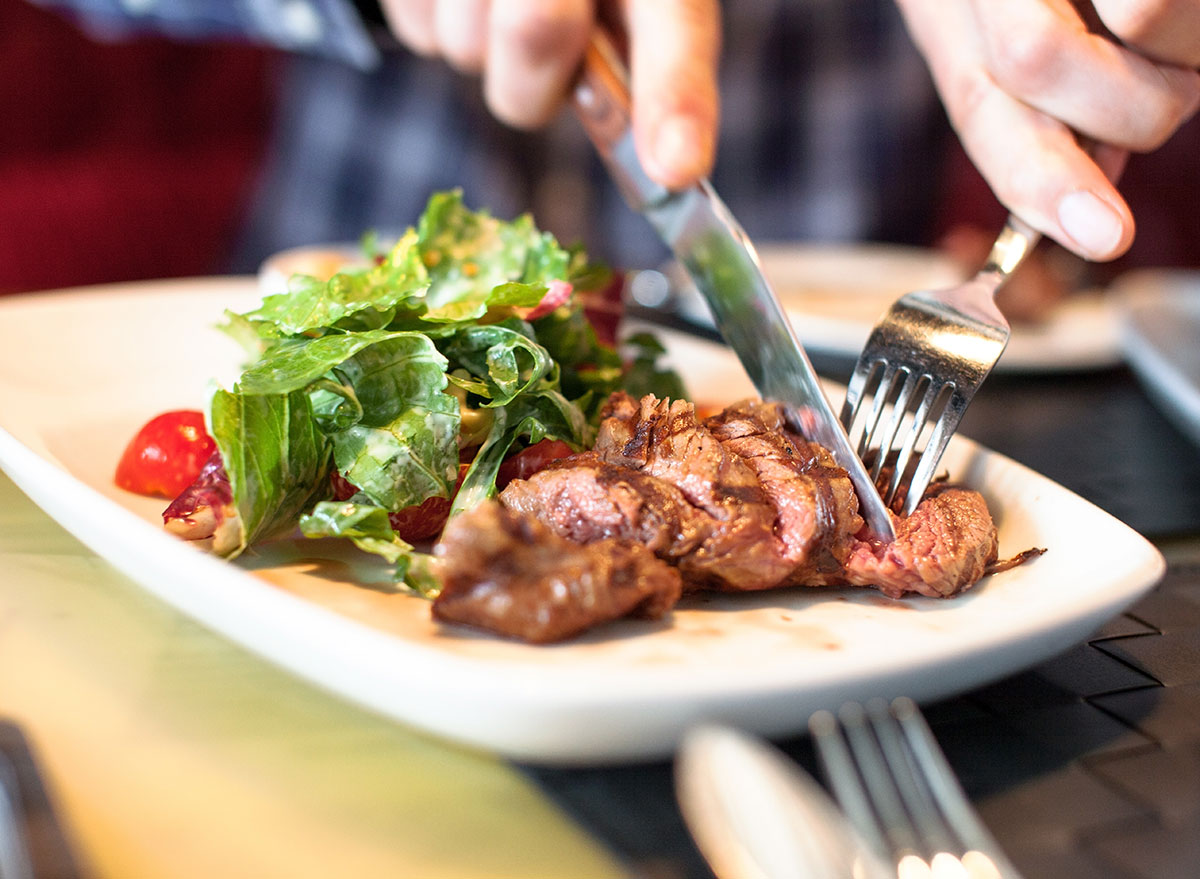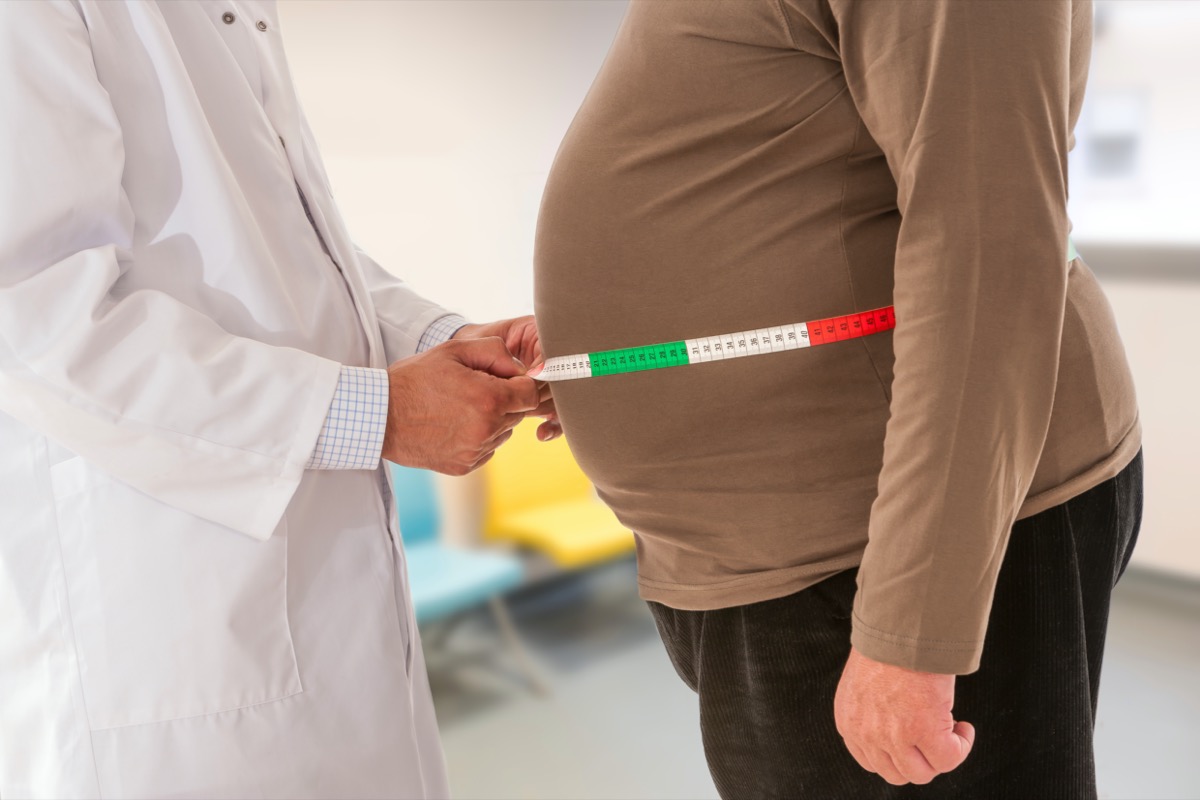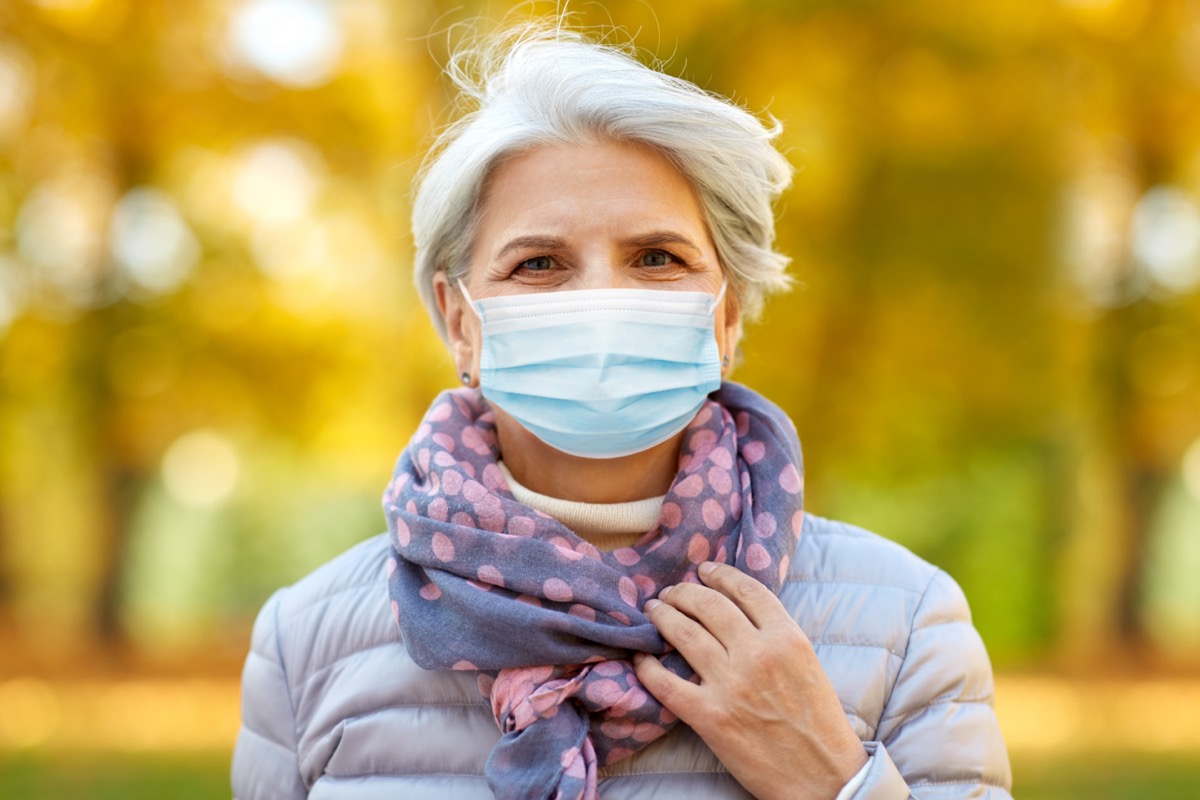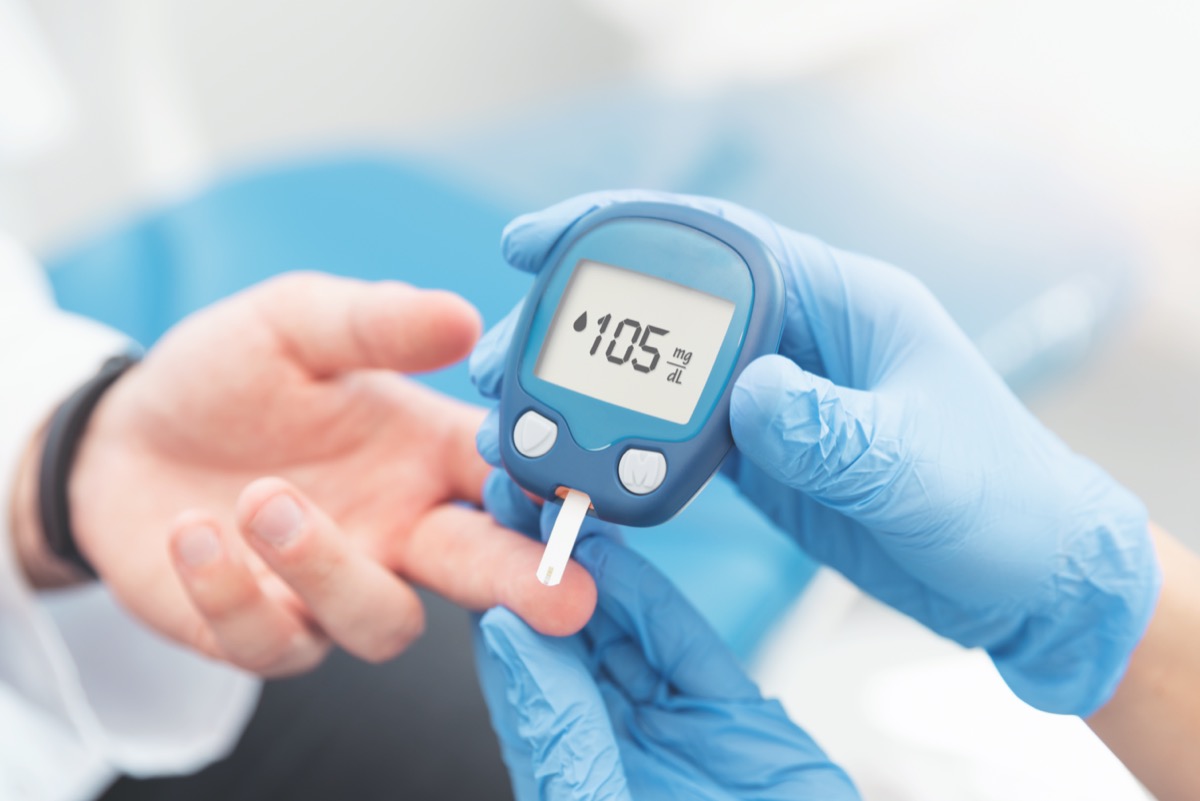Since high cholesterol has no symptoms, you may be putting yourself at risk without even realizing it. “Cholesterol is a waxy substance found in your blood. Your body needs cholesterol to build healthy cells, but high levels of cholesterol can increase your risk of heart disease,” says the Mayo Clinic. “Factors that can increase your risk of bad cholesterol include” the following. Read on for what the Clinic says—and to ensure your health and the health of others, don’t miss these Sure Signs You May Have Already Had COVID.


“Eating saturated fat, found in animal products, and trans fats, found in some commercially baked cookies and crackers and microwave popcorn, can raise your cholesterol level,” says the Mayo Clinic. “Foods that are high in cholesterol, such as red meat and full-fat dairy products, will also increase your cholesterol.”
RELATED: 15 Supplements Every Woman Should Take, Say Doctors


“Having a body mass index (BMI) of 30 or greater puts you at risk of high cholesterol,” says the Mayo Clinic.
RELATED: 40 Ways to Stay Healthy After 40, Say Experts


“Exercise helps boost your body’s HDL, or ‘good,’ cholesterol while increasing the size of the particles that make up your LDL, or ‘bad,’ cholesterol, which makes it less harmful,” says the Mayo Clinic.
RELATED: Warning Signs You’re Becoming Obese


“Cigarette smoking damages the walls of your blood vessels, making them more prone to accumulate fatty deposits. Smoking might also lower your level of HDL, or ‘good,’ cholesterol,” says the Mayo Clinic.
RELATED: How You Could Delay Dementia, According to Science


“Because your body’s chemistry changes as you age, your risk of high cholesterol climbs. For instance, as you age, your liver becomes less able to remove LDL cholesterol,” says the Mayo Clinic.
RELATED: Subtle Signs You May Have Dementia, According to Science


“High blood sugar contributes to higher levels of a dangerous cholesterol called very-low-density lipoprotein (VLDL) and lower HDL cholesterol. High blood sugar also damages the lining of your arteries,” says the Mayo Clinic.
RELATED: Major Secrets Doctors Won’t Tell You


“The same heart-healthy lifestyle changes that can lower your cholesterol can help prevent you from having high cholesterol in the first place,” says the Mayo Clinic. “To help prevent high cholesterol, you can:
- Eat a low-salt diet that emphasizes fruits, vegetables and whole grains
- Limit the amount of animal fats and use good fats in moderation
- Lose extra pounds and maintain a healthy weight
- Quit smoking
- Exercise on most days of the week for at least 30 minutes
- Drink alcohol in moderation, if at all
- Manage stress”
And to get through this pandemic at your healthiest, don’t miss these 35 Places You’re Most Likely to Catch COVID.